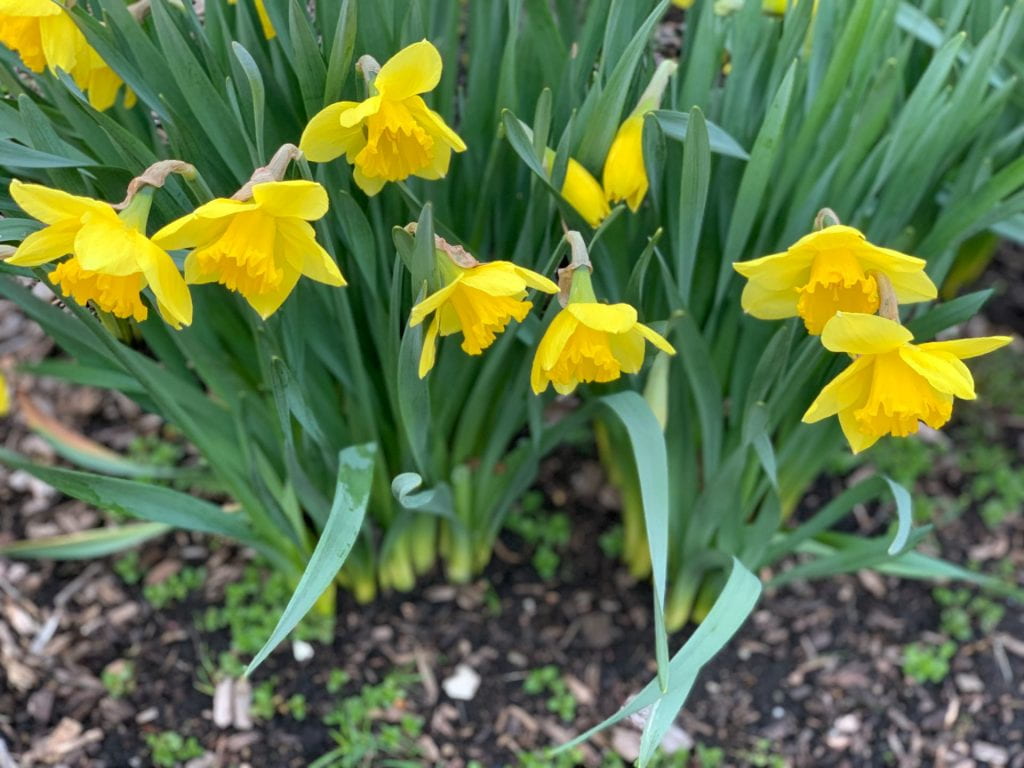 Do not be upset if things are not as you would want them to be for a long time to come. Do the little you can very peacefully and calmly so as to allow room for the guidance of God in your lives. Do not worry about the rest. — Louise de Marillac[1]
Do not be upset if things are not as you would want them to be for a long time to come. Do the little you can very peacefully and calmly so as to allow room for the guidance of God in your lives. Do not worry about the rest. — Louise de Marillac[1]
Sometimes—oftentimes, lately—the world can feel overwhelming, and to be honest, a little bleak. Even as there is a collective momentum to try to shift toward a sense of recovery and healing, it can feel a bit like catching your breath before the next wave hits. It also matters where you are standing … and if you have the privilege of a space for healing.
There are the wars and their spiraling horrors in Ukraine and Yemen; a pandemic that marches on, sometimes slowing, sometimes quickening, with death and long-term illness in its wake; a political and civil maelstrom that churns and darkens, sure to break during the summer and fall; growing economic and racial inequalities that continue to metastasize unabetted; and looming ahead and upon us, a climate crisis, the effects of which we are already experiencing.
Where is justice? Where is hope? Where is healing?
These are some of the same realities—and questions!—that Vincent de Paul’s longtime partner in helping the poor, Louise de Marillac, faced. Saint Louise—whose Feast Day we celebrate this week—lived in a time of plague (check), war (check), violent political upheaval, and gross inequality (check, and check). I’ll be the first to admit that my image of saints (even though I’m not Catholic myself) tends to be through the distorted rosy lens of beatification. That is, these saintly figures surely floated above and beyond their historical context, transcendent in their ethereal embodiments of our greatest ideals. The truth is, they were just like us, living (sometimes intentionally) in the mud, dirt, and trauma of their days.
Where is justice? Where is hope? Where is healing? For Saint Louise—whose direct actions, ideas, and collaboration with Vincent formed what we now think of as Vincentianism—it was not enough to just bear witness to the trauma of the day. These questions were at the forefront of Saint Louise’s mind, keeping her awake. But these were not idle thoughts or mere academic questions. They were quite literal. She sought justice; she sought hope. She sought healing. And when she could not find them, she provided them. For others, for herself.
Her personal life was not without sorrow and hardship. Born of out of wedlock, a child of a single-parent home, she experienced her father’s death at age twelve and was rejected from the cloistered life she deeply desired at age fifteen. She was no stranger to childhood trauma. After marrying, she raised a special-needs son, but soon her husband died. Depression followed her, as did guilt. Widowed, and recognizing that she had a calling deep in her core, she met an irascible priest named Vincent. She initially found him repugnant. However, though they did not get along at first, their mission and purpose in life sang in harmony. Their commitment to the poor and vulnerable, to those who bore individual and systemic trauma, drove them both onward. Though her depression and sadness were never gone, they actively worked together to alleviate the suffering of others, and in so doing found hope, justice, and healing. They created a tradition that has spread from Paris to the world.
We’re now part of their story, her story, the next chapter in a four-century long tale. As we celebrate Louise de Marillac this week, celebrate your own part of her legacy. We can make things better, if we act out of that same engaged compassion that Saint Louise modeled so beautifully.
Reflection by: Alex Perry, Program Manager, Division of Mission and Ministry
About Louise Week:
In honor of Saint Louise de Marillac’s Feast Day on May 9th, the Division of Mission and Ministry invites DePaul students, faculty, and staff to celebrate Louise Week 2022.
Louise de Marillac lived in a time of great upheaval and crisis. She, along with a growing number of female collaborators, provided shoulders that helped bear the weight of a country racked by war, entrenched in political upheaval, overwhelmed by the plague, and struck by hunger. The shadows of her own life’s story were filled with grief and loss and provided a vehicle for transformation that led to creating new pathways for women. Her story reminds us of the possibility of light transcending darkness.
Connecting to Louise’s story and tying it to the present can encourage us in times of suffering and uncertainty. As we seek healing from the impacts of living through a pandemic for the last two years, Louise’s example calls us to community, healing, and rekindling joy.
Join us May 9–13 to pause, connect, and celebrate St. Louise’s legacy alive today at DePaul. Just as she was sustained by the generosity and goodness of those around her, may we too take the time to pause, uplift, and celebrate with gratitude those who sustain our journey.
Curious to learn more about Louise’s personal journey? Check out this virtual six-day pilgrimage created last year that follows her footsteps across Paris.
[1] Letter 519, “To Sister Anne Hardemont (at Ussel),” (1658), Spiritual Writings of Louise de Marillac, 614–15. See: https://via.library.depaul.edu/ldm/.







